We are delighted that you are joining us for the upcoming event:
Transforming Stress Into Opportunities: Insights from Science and Buddhism
with Mingyur Rinpoche, Dr. Richard Davidson and Dr. Cortland Dahl
We recommend adding the event to your calendar now:
A confirmation email with the event link will arrive shortly. To access the webinar, click on the button below.
GO TO EVENTWe look forward to seeing you soon!
START DATE
Saturday, March 8, 2025
TIME
March 8, 2025.
10 a.m.-12 p.m. EST (New York),
4-6 p.m. CET (Europe),
11 p.m.-1 a.m. HKT (Hong Kong)
LANGUAGE
Translation from English will be offered in Chinese, French, German, Portuguese, and Spanish.
Transforming Stress Into Opportunities: Insights from Science and Buddhism
with Mingyur Rinpoche, Dr. Richard Davidson and Dr. Cortland Dahl
Register for freeSTART DATE
Saturday, March 8, 2025
TIME
March 8, 2025.
10 a.m.-12 p.m. EST (New York),
4-6 p.m. CET (Europe),
11 p.m.-1 a.m. HKT (Hong Kong)
LANGUAGE
Translation from English will be offered in Chinese, French, German, Portuguese, and Spanish.
World-renowned meditation teacher Mingyur Rinpoche, neuroscientist Dr. Richard Davidson, and contemplative scientist and Tergar instructor Dr. Cortland Dahl come together for a special two-hour webinar. They will bridge the ancient wisdom of Buddhist contemplative practice with cutting-edge scientific findings to reveal how we can transform chronic stress and difficult emotions into opportunities for inner exploration and profound personal growth. Discover the three methods of abandoning, transforming, and gaining insight into emotions to cultivate greater well-being and resilience in your life.
WHY SHOULD I ATTEND?
Feeling overwhelmed by stress and life's emotional challenges? Learn practical and powerful techniques rooted in ancient Buddhist wisdom and modern neuroscience to navigate difficult emotions with greater ease and resilience. Mingyur Rinpoche and Drs. Richard Davidson and Cortland Dahl will discuss how to apply transformative methods to cultivate a calmer mind, greater emotional balance, and a deeper understanding of yourself.
WHAT WILL I LEARN?
In this program, you will:
- learn how to use insights from cutting-edge neuroscience and ancient Buddhist wisdom to train and transform your mind and brain
- transform your response to challenging experiences and stressful moments by tapping into innate capacities in your mind and brain
- learn three methods from the meditation teachings of Tibet on working with emotions to cultivate greater well-being
- tap into your full potential to flourish by discovering how qualities like awareness, compassion, and wisdom are always present
- learn how to harness the power of neuroplasticity and epigenetics to train and transform your mind and brain
WHAT IS INCLUDED IN THIS PROGRAM?
- A live conversation between Mingyur Rinpoche and Drs. Richard Davidson and Cortland Dahl, followed by a Q&A session
REQUIREMENTS FOR PARTICIPATION:
This program is open to everyone.
Can I get access to a recording of this event?
Recordings will be posted in English only on YouTube.
About: Born To Flourish
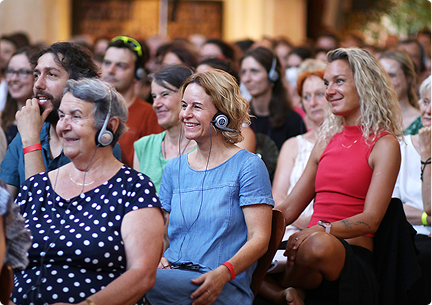
Register now
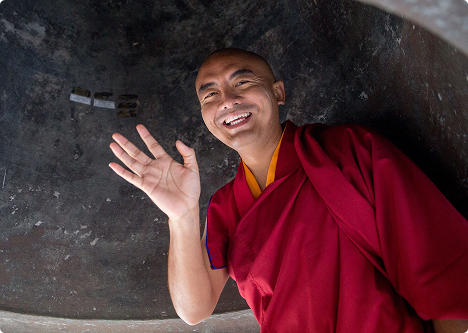
Study and Practice with Mingyur Rinpoche
Joy of Living is a meditation path created by Mingyur Rinpoche. Rooted in the ancient Buddhist teachings of Tibet, it is open to everyone, regardless of cultural or religious background.
Access over 100 video teachings and guided meditations from Mingyur Rinpoche
Join live webinars with experienced meditation instructors and connect with a supportive online community
Follow a structured three-level curriculum exploring awareness, compassion, and wisdom
Track your journey with ourfree app, featuring space for reflections and optional daily reminders
Book 1:1 interviews with qualified meditation guides to clarify your questions and receive personal support
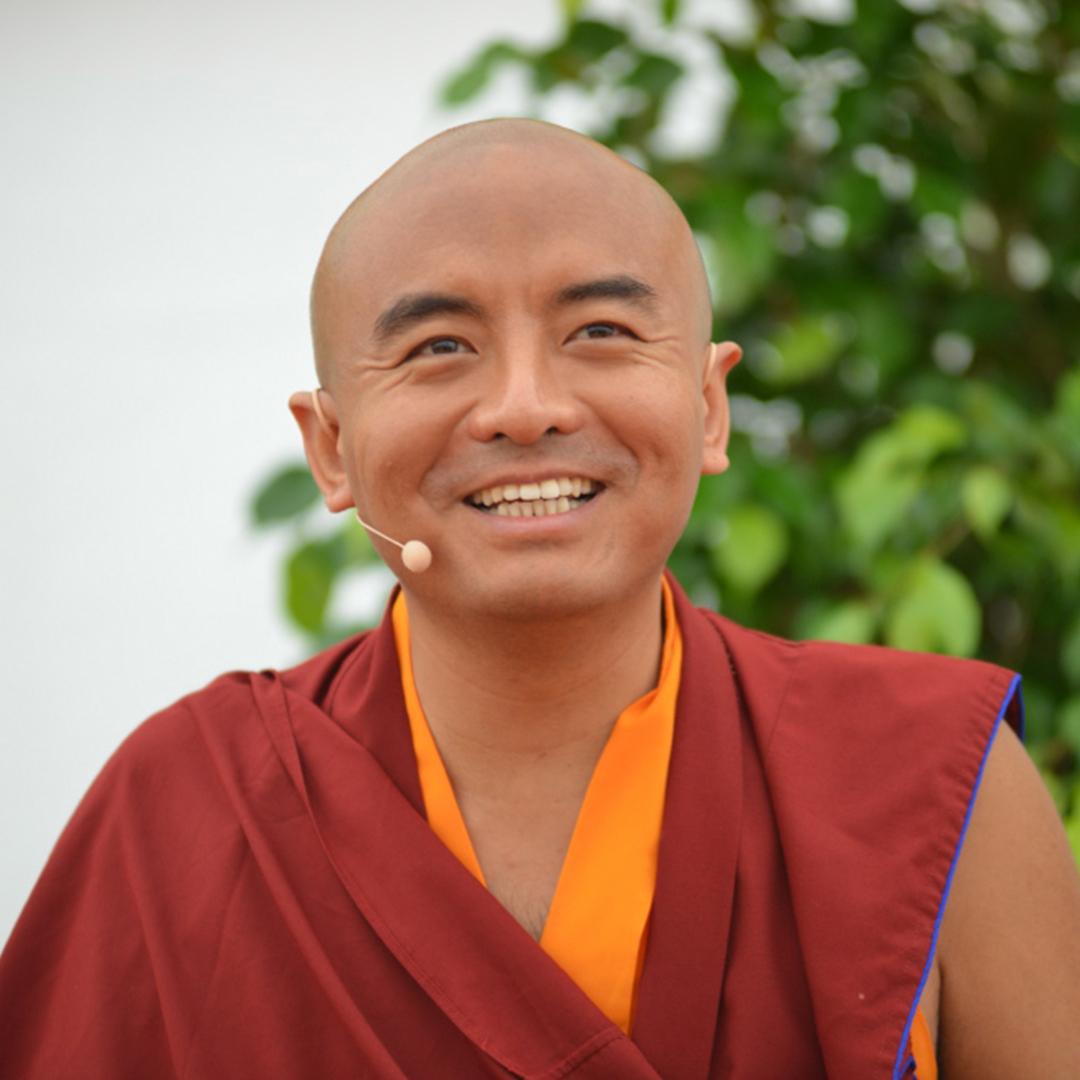
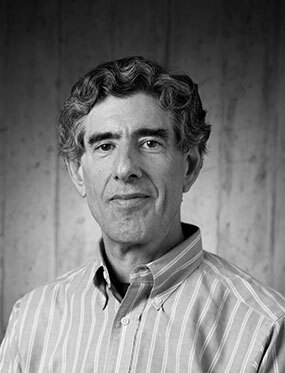
Dr. Richard Davidson is a William James and Vilas Research Professor of Psychology and Psychiatry at the University of Wisconsin-Madison as well as founder and director of the Center for Healthy Minds. His research is focused on the neural bases of emotion and emotional style and methods to promote human flourishing, including meditation and related contemplative practices. He has published more than 400 articles and is the co-author of The Emotional Life of Your Brain and Altered Traits: Science Reveals How Meditation Changes Your Mind, Brain, and Body. Davidson has been recognized for his research through various awards, such as a National Institute of Mental Health Research Scientist Award and an Established Investigator Award from the National Alliance for Research in Schizophrenia and Affective Disorders (NARSAD). Davidson received his PhD from Harvard University in Psychology and has been teaching psychology and psychiatry at the University of Wisconsin-Madison since 1984.
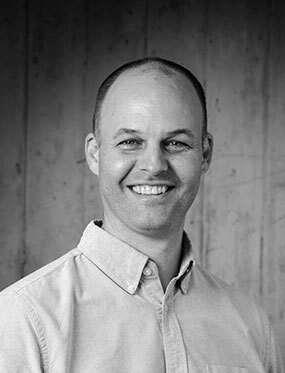
Cortland is a scientist, translator, and meditation teacher who offers workshops and leads retreats around the world. He has practiced meditation for nearly three decades and has spent time on retreat in monasteries and retreat centers throughout Japan, Burma, and India, including eight years spent living in Tibetan refugee settlements in Kathmandu, Nepal. He has a Ph.D. in Mind, Brain and Contemplative Science from the University of Wisconsin-Madison, where he was mentored by renowned neuroscientist Dr. Richard Davidson. He also holds a master’s Degree in Buddhist Studies from Naropa University. In addition to his work as an Instructor for the Tergar community and Executive Director of Tergar International, Cortland serves as Research Scientist and Chief Contemplative Officer at UW-Madison’s Center for Healthy Minds and the center’s affiliated non-profit, Healthy Minds Innovations. Cortland is actively involved in scientific research and has published articles on the impact of meditation practices on the body, mind, and brain. He has also published twelve books of translations of classical texts on Buddhist philosophy and meditation. He currently lives with his wife and son in Madison, Wisconsin.
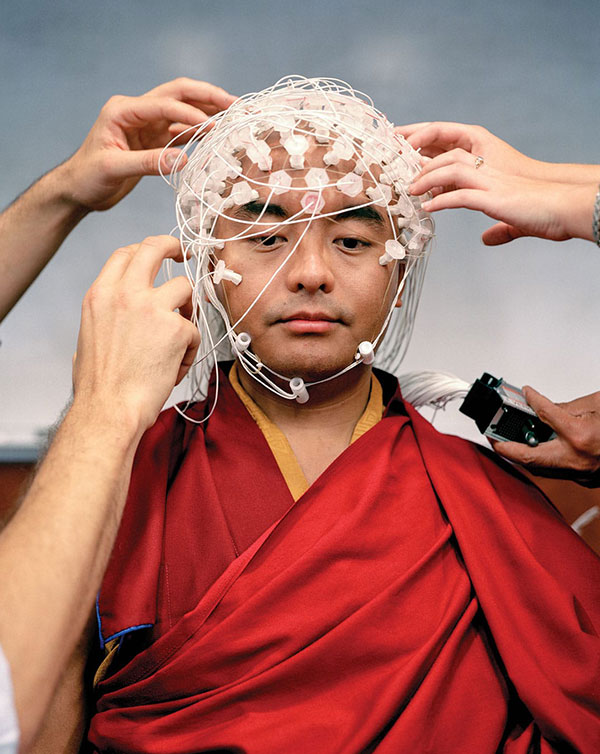
In his approach to teaching meditation, Mingyur Rinpoche integrates traditional Buddhist practice and philosophy with the current scientific understanding of the mind and mental health – making the practice of meditation relevant and accessible to students around the world.
Mingyur Rinpoche is a world-renowned meditation teacher with personal experience of anxiety and panic attacks, which he suffered from throughout his childhood and into his teenage years, when he learned to transform his panic through meditation. Born in Nepal in 1975, Mingyur Rinpoche began to study meditation as a young boy with his father, Tulku Urgyen Rinpoche, himself a well-respected Buddhist teacher. As a child he became interested in contemporary science through conversations with scientists who were visiting his father, and as he grew older he began to collaborate with neuroscientists and psychologists, including Richard Davidson and Antoine Lutz at the University of Wisconsin, on research projects that study the effects of meditation on the brain and the mind.
 EN
EN





